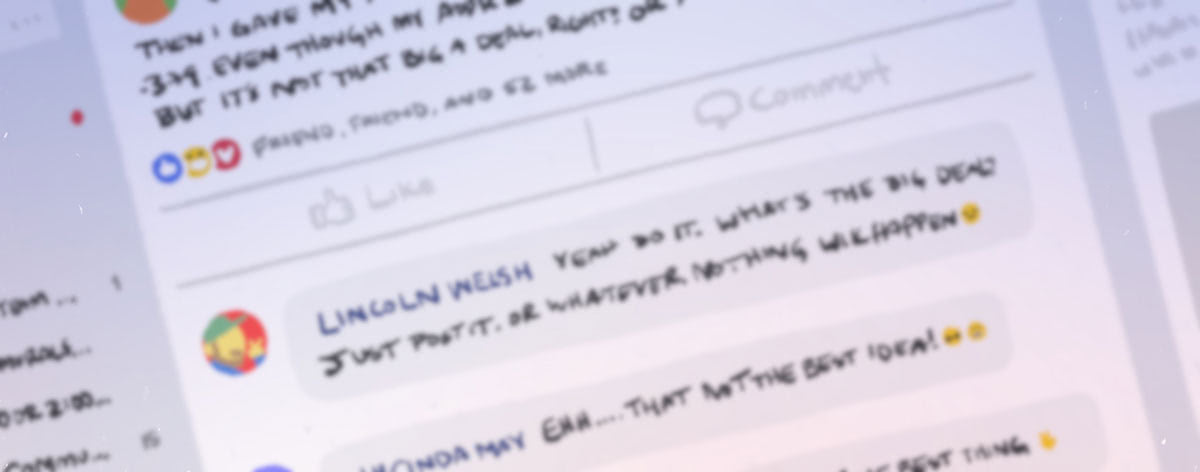

11 Important Skills that Every Digital Citizen Should Possess
Digital citizenship is the way in which people use technology and internet resources—whether right or wrong. Everyone that uses technology could be defined as a digital citizen, but only a good digital citizen knows how to be responsible with their online presence and show proper online etiquette. Here are eleven essential skills every good digital citizen should have:
1. Recognize when personal information is being collected.
Every digital citizen should be aware of the risks associated with data collection and take steps to protect their privacy. Websites regularly save information about their customers, including demographics and how the customers use their site, phone numbers, email addresses, and more. Websites can even record your computer’s ID and your IP address—both of which are unique and can be traced back to you. A good digital citizen will be careful about the data they knowingly give to websites and avoid websites known for selling the data they gather.
2. Understand that technology is a means to an end.
Technology helps us achieve our goals, but it can also allow you to pick up dangerous habits, meet unsavory people, and be exposed to false information. And the internet, in particular, is very good at creating a false sense of security. When you remember that you have control over what you do online, you're better prepared to recognize when this tool is leading you somewhere you don't want to go.
3. Familiarize yourself with copyright & creative rights.
Whether it's art, videos, essays, or any number of other things, making and posting content for potentially hundreds or thousands of people to see online is as simple as a few clicks of a button. Unfortunately, it has also made the theft of content and ideas—both intentional and unintentional—much easier and more common.
Anyone who creates or consumes online content should have an understanding of how copyright works. Just because it may be easy to put a piece of music on a video, add a character to a t-shirt, or edit a photograph, does not mean that it's legal to do so. A good digital citizen will educate themselves on the basics of copyright law and ensure that they aren't infringing on others' creative ownership online—especially when making something for money.
4. Use strong passwords.
In this new digital world, passwords are everything. You use one to access social media accounts, financial institution accounts, streaming accounts, make online purchases, and more. Which is why password protection is critical. Every digital citizen should have a good understanding of how to keep their passwords safe. This includes utilizing strong passwords, not sharing passwords with others, not using the same password for multiple accounts, and changing passwords regularly.

5. Protect yourself from cyberbullying and harassment.
Unfortunately, a lot of people forget that behind every user is an actual person. They take the disguise of an avatar and username as an excuse to be cruel, often for little to no reason at all. While it may bring to mind a rude child knocking a middle schooler's books out of their arms, what we're describing here is bullying, and cyberbullying attacks can be hard to handle for anyone—middle schooler, college student, and adult alike. Blocking and reporting aggressive bullies, avoiding spaces that tend to bring out the worst in people, and refusing to engage in and escalate bullying are all good first steps to protecting yourself. And remember that a mental health professional can help you sort through the complications of dealing with bullies online.
Try this Cyberbullying Course to learn more.
6. Consider how your actions affect others.
Similar to the point above, good digital citizens need to know that their actions online affect others—both positively and negatively. This means avoiding cyberbullying and hate speech, and being respectful of others' opinions and beliefs. No trolling allowed.
7. Take ownership over your digital footprint.
A person's digital footprint is information that exists about them online. It's built from their activity—what a person likes, what they post, the information they provide on certain sites, their browser history, etc. All of those components are what makes up someone’s digital footprint.
Taking ownership of your digital footprint means creating a positive online presence. Make sure that what people see of you online is accurate and authentic, and be mindful of the content you post and make sure that it reflects well on both you and your employer.
8. Keep security top of mind.
We all know the internet can be a dangerous place if you're not careful. Good digital citizens should always keep security in mind. This means using strong passwords, avoiding suspicious links and websites, and keeping antivirus software up-to-date.
9. Research everything.
Though the internet has allowed for a surge of information at our fingertips, not all of it is true. People can say anything online, and incorrect information is often spread purposefully by those hoping to misdirect people who do not do their research, and accidentally by those who get caught up in inflammatory headlines or information that confirms their perspective on things. A good digital citizen needs to know how to identify credible sources of information and use critical thinking skills to evaluate the information they find.
10. Protect your time.
Have you ever sat down to scroll on your favorite social media and found that, somehow, hours have passed in the blink of an eye? The internet is particularly good at getting you to waste one of your most valuable resources: time. It's okay to spend your time online, but you want to do it with intention. Don't just mindlessly scroll, make the choice to do something that boosts your happiness, helps you relax from a long day, or encourages you to improve. Your time is precious, don't waste it on things that aren't helping you.
11. Create a healthy online and offline balance.
Technology can be detrimental to our physical and mental wellbeing if we’re not careful. A good digital citizen will know the risks of spending too much time online, texting and driving, scrolling through social media rather than sleeping, or putting too much stock in what people say about them on the internet. They will actively work to create a balance in their life and ensure that technology is helping, not harming, them.
It's pretty hard to avoid being online these days. These digital citizenship skills can make all the difference and ensure you have a fun, healthy, and safe time. Remember, the internet is a public space, and your actions have consequences. Be mindful of your online presence, protect your privacy, and use technology responsibly.
Neither Banzai nor its sponsoring partners make any warranties or representations as to the accuracy, applicability, completeness, or suitability for any particular purpose of the information contained herein. Banzai and its sponsoring partners expressly disclaim any liability arising from the use or misuse of these materials and, by visiting this site, you agree to release Banzai and its sponsoring partners from any such liability. Do not rely upon the information provided in this content when making decisions regarding financial or legal matters without first consulting with a qualified, licensed professional.

